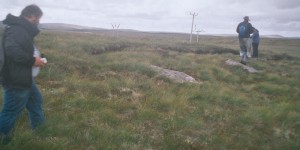Quagmire – noun:
- a soft boggy area of land that gives way underfoot
- an awkward, complex, or hazardous situation
Different traditions use different words. These may or may not be expressing different experiences. Words are always inadequate for expressing deeper spiritual truths, we have to use metaphor and poetry because we are not speaking of material things. Shared experience and shared cultural background is assumed when we use language in these ways, but it may not actually exist. Even between people from a very similar background any given word may have particular overtones that result in it having a subtly, or grossly, different meaning for each of them. When we use emotionally loaded words like God we step into a quagmire. Lots of other basic religious terminology is fraught with the same difficulties. When talking with people from different faith backgrounds the problems can be particularly acute.
We may become fearful of saying anything at all for fear of being misunderstood. Just as we may fear to step into a quagmire, a bog.
As an example of the sort of difficulties that can be encountered, I recently attended a discussion meeting of my local SGI Buddhist group. I know many of the people in the group and have chanted and discussed with them fairly regularly over many years. On this occasion the group included one person who first language is Spanish and two (from Brazil) whose first language is Portuguese. The question before the discussion group was:
‘How can you apply the lion’s roar of ‘nam myoho renge kyo’ to develop the dignity of life in your environment?’
We had to have the question repeated several times in order to begin to grasp what it meant. The question had probably been asked originally in Japanese, the translation into English does not read very comfortably to a native English speaker. Even more difficult, I guess, when English is not your first language. And then, the emphasis of the discussion is to speak from our own experience, so we all need to use words that we, personally, are comfortable with. Some of us were puzzled by the meaning of ‘lion’s roar’, ‘dignity of life’ and ‘your environment’. Is ‘your environment’ my personal environment; the physical environment (locally or the whole planet) that we are may be working to protect; my emotional environment; my workplace environment? Does ‘dignity of life’ refer to not killing anything; to treating life with respect but accepting death as part of life; is it about war or about being vegetarian? Then there is the word ‘develop’ – I won’t explore that one, because I’m not at all sure that I’ve remembered the correct word!
Some spoke of the strength that they gain from chanting ‘nam myoho renge kyo’ and clearly understood something of the metaphor of the ‘lion’s roar’. Others talked about how their environment, their immediate surroundings, are part of the wider environment, and linked this to experiences where a change in themselves, in their attitude (however small), actually led to changes in their surroundings, in their environment. I spoke about seeing the dignity of life in political leaders with whom I disagree, leading to my being able to feel compassion for them (see last week’s post). One person felt the need to speak in her native Portuguese and her friend translated. It is very hard to speak of deeper experiences in a language that does not come easily to the tongue.
Despite all the difficulties, I felt that we were actually sharing well on a deeper level, because everyone listened very attentively and tried to hear beyond the specific words to what the speaker really meant.
Now I’m going to risk the quagmire of translating. In the Community of Interbeing we call this ‘deep listening’, among Quakers we speak of ‘hearing where the words come from’. At least, that is my understanding of the experience.

